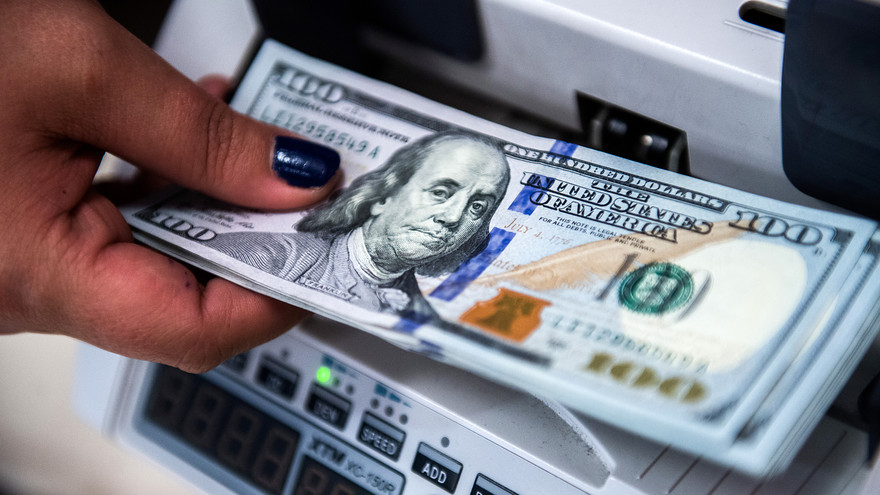The U.S. dollar slipped on Friday morning as hopes for a U.S.-China compromise on trade rose and traders pulled money from safe-haven assets.
The Japanese yen and Swiss franc also ticked down as risk aversion abated, but investor optimism was cautious and moves across currencies were muted. The dollar was down 0.22% against a basket of six rival currencies but was 0.2% stronger against the yen and 0.41% stronger against the Swiss franc.
U.S. President Donald Trump’s tariff increase to 25% from 10% on $200 billion (153.7 billion pounds) of Chinese goods kicked in on Friday, and Beijing said it would strike back. The two sides are pursuing last-ditch talks to try to salvage a trade deal.
“There seems to be a sense in which FX traders are looking through the narratives and noise and betting on a cooling down, a compromise. So we’re seeing interesting cross-currents in currency markets away from some of the safe-haven currencies that had been benefiting and towards some of the risk-sensitive, commodity-linked currencies in particular,” said Karl Schamotta, director of FX strategy and structured products.
Risk appetite was modestly higher though some of the higher-yielding currencies such as the Australian dollar, a proxy for Chinese economic prospects, which was 0.19% higher buying $0.700.
Trump on Friday said he was in “absolutely no rush” to finalise a trade agreement with China as U.S. negotiators prepared to continue talks in Washington, saying discussions were continuing “in a very congenial manner”.
With U.S. and Chinese officials back at the negotiating table on Friday, investors have quietly ratcheted up bets of a U.S. interest rate cut, with markets now roughly expecting one rate hike by the end of 2019.
However, also on Friday, the Labour Department reported that U.S. consumer prices rose in April but underlying inflation remained muted, suggesting the Federal Reserve could keep interest rates unchanged for a while.
Elsewhere, the Canadian dollar was higher after employment data showed the country added a record 106,500 jobs in April, a gain that far outstripped analyst expectations. The loonie rallied the most since March, last half a percent stronger at $1.341.
“We’re probably a bit suspicious of how good that is, but at least for now that has helped make the Canadian dollar an outperformer among currencies,” said Schamotta.













